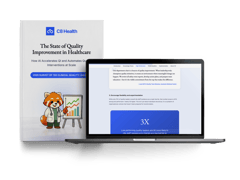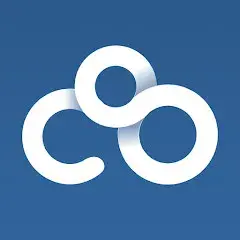
Mitigating Onboarding Issues with Mobile-Friendly Tools
The first days and weeks in a new healthcare facility aren't easy: our world requires you to be on your feet and in the field quickly in a high-pressure, high-stakes environment. A lack of accessible information often leads to misunderstandings, resulting in disengaged staff.
The solution? Mobile-friendly tools that support the onboarding process in a way that's tailored to healthcare. These tools efficiently convert traditional content into easily accessible, role-specific knowledge. Let's look at how that works.
» Looking to improve staff wellbeing? Check out how to keep your team happy and productive.
Meet the Expert
Ido Zamberg M.D. is a board-certified physician (General Internal Medicine and Anesthesia), currently a Fellow at the Division of Experimental Medicine, McGill University Health Center, Montreal, Canada.
What Are Point-of-Care Clinical Knowledge Tools?
Point-of-care clinical knowledge tools are tools with digital resources such as clinical guidelines, procedures, and protocols that guide healthcare professionals in making patient care decisions.
These tools allow for medical knowledge to be more accessible, usable and applicable at the point of care by clinicians, from any device.
The Challenges of Onboarding in Healthcare
Inadequate Information Access
In healthcare, new hires often face a critical gap in knowledge. Onboarding usually focuses on admin, not vital details like procedures or drug dosages. This can lead to mistakes, delays, and suboptimal patient outcomes.
To fix this, hospitals and clinics need to better share clinical knowledge and give new staff hands-on training, helpful mentors, and easy access to information. By doing this, healthcare workplaces can create confident, skilled employees who provide optimal care for patients.
Time-Consuming Processes
The onboarding process in most health institutions is time-consuming, sometimes taking up to 18 months. This lengthy period can have a negative impact on clinicians' autonomy, patient care, and overall job satisfaction.
So we need strategies that expedite this process without compromising its effectiveness to avoid staff burnout. The goal should be to facilitate a smoother transition for incoming clinicians through a thorough yet efficient onboarding process.
Centralized knowledge management platforms can help, but that's an area where many organizations struggle. Read our latest white paper to learn more.
Lack of Engagement and Retention
When onboarding fails to engage and provide value to new healthcare professionals, it can lead to frustration, low productivity, and disengagement. Employee morale may suffer and become a major factor in their decision to stay or leave.
Instead of viewing onboarding as a mere formality, healthcare institutions need to recognize it as a strategic opportunity to improve retention, foster employee productivity, and reduce staff turnover.
Overwhelming Information Flow
The sheer volume of information presented during onboarding can be overwhelming for new healthcare professionals. This information overload can lead to ineffective learning and recall. Without appropriate knowledge management tools, healthcare professionals may struggle to remember vital procedures and protocols when needed.
» Make your hospital's protocols accessible to everyone in real-time with C8 Health.
The Role of Mobile Tools in Improving Onboarding in Healthcare Institutions
Mobile tools can significantly improve onboarding in healthcare institutions by providing just-in-time information. C8Health was designed specifically for the complex information landscape of healthcare. It offers:
- Task guidance: Instructions for specific tasks to assist new hires.
- Quick access: Indexing and searchability features for finding specific answers without sifting through lengthy documents.
- Simplified experience: Traditional content is converted into interactive formats for effective knowledge delivery.
- Knowledge accessibility: Provides all necessary information for efficient performance, such as procedures, colleague lists, and guidelines.
- Just-in-time information: Delivers personalized content using AI to adapt to the user's context.
- Content transformation: Long healthcare documents are turned into digestible, interactive content for mobile users using AI algorithms.
For Dr. Daniel Katz (Department of Anesthesia, Mount Sinai), C8 has helped improve knowledge dissemination in his role as Vice Chair of Education, helping to teach employees more efficiently.
The Future of Simplified Onboarding is C8Health
It is evident that mobile tools profoundly impact streamlining the onboarding process for healthcare professionals. Adopting platforms like C8Health allows healthcare organizations to simplify their onboarding procedures while promoting easy accessibility to vital information.
As such, healthcare institutions need to embrace digital transformation. By using mobile tools, you can substantially improve the onboarding experience for your teams, enhancing overall productivity and guaranteeing optimal patient care.


